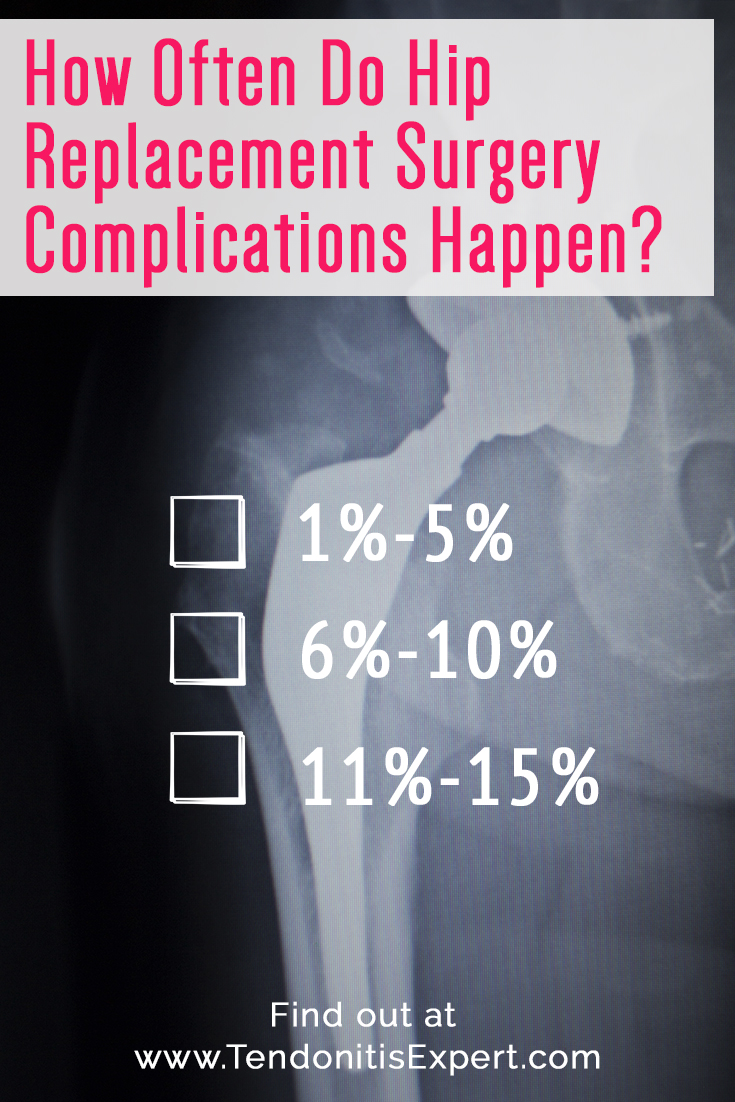Hip Replacement Surgery
Hip Replacement Surgery does what it says it does....it is a surgical procedure that replaces the hip joint.
Partial or full replacement of the hip joint is performed when the structural integrity is too far gone to be fixed by other methods.
Obviously the best time to pay attention to the hip is BEFORE hip replacement is necessary or even advisable.
Having said, that, in most cases, by the time surgery is recommended, it's needed.
What Is Hip Replacement Surgery?
When a hip joint structure is too damaged, degraded, disintegrated, degenerated to function without great amounts of pain and/or disability, doctors recommend hip joint surgery.
This is either:
- Arthroscopic hip surgery
- Hip replacement surgery
Arthroscopic Hip Surgery
Arthroscopic surgery on the hip is more of a 'clean up' procedure.
The surgeon makes two small incisions and sticks a camera and a cutting tool into the joint.
This way they can clean up:
- rough joint lining
- bone spurs
- meniscus damage
- floating chunk of cartilage inside the joint
- torn ACL repair
Arthroscopic surgery definitely still requires recovery time and rehab, but compared to a hip replacement it's relatively minor.
Hip Replacement Surgery
Hip replacement surgery has two main categories:
- Partial Replacement
- Full Replacement
Partial Hip Replacement
Hip hemiarthroplasty is the medical terminology for a partial hip replacement procedure.
It is used more for injury (fractured and/or broken hip bones from traumatic injury).
This procedure generally consists of replacing only the ball part of the joint (femoral head). The socket (acetabulum) is not replaced.
Full Hip Replacement
The full replacement procedure replaces both the femoral head and hip socket with metal parts.
Unfortunately this does not make the recipient a cyborg, nor give them super powers. No leaping over a building with a single bound.
But, once healed up some, it does grant somebody that wasn't very mobile due to hip joint pain the ability to walk, stand, and move around again.
The procedure consists of cutting off the head and neck of the femur bone, and grinding out the socket.
The remaining top of the long bone gets a metal replacement pounded in (literally), and the dug out and smoothed out socket gets a metal cup secured into it (with or without a special cement).
As technology and technique has improved, there is now a variation where instead of using one big long incision in the skin (and deeper tissue as necessary) a more minimally invasive procedure can be used (depending on the patient's specific scenario) that utilizes two smaller incisions.
The allows for less pain and quicker recovery.
How Effective Is Hip Replacement Surgery?
I'm am constantly amazed how effective and minimally problematic hip replacement surgery is, even in the elderly.
If you're a candidate for this surgery, I recommend that you DO NOT watch a video of the surgery being done. Your brain doesn't need to see that.
But, having watched the surgery, and knowing what it consists of, it's clear that it is a VERY traumatic surgery.
They have to:
- Anesthetize the patient
- Make a big incision or two smaller ones in your skin and deeper tissue
- Push big muscles and connective tissue out of the way
- Hold those muscles out of the way
- Cut through the connective tissue of the joint capsule
- Traumatize ligaments that hold the joint together
- Cut through bone
- Pound an anchor/stake down into the femur
- Grind out the socket art of the joint and secure a metal cup in the socket
- Shove it into place and make sure it's aligned correctly. Pound adjustments as needed
- Sew/staple the wound closed
- Wake up from the anesthesia
And then recovery, which takes months and months.
Having said all that, and traumatic as the procedure is, hip replacement surgery is one of the most successful of all orthopedic surgeries.
The majority of patients report about 95% pain relief (after 6+ months of healing and recovery).
How Long Will The Artificial Hip Last?
Research over decades shows that 20 years after the implant, 9 out of 10 (some say 8 of 10) recipients still have a functioning replacement and will not need another surgery (because the hardware wore out).
And 30 years later, 7 out of 10 recipients still have a functioning implant.
What Comes After Hip Replacement Surgery?
After hip replacement surgery comes the recovery period.
You're going to be down for a while.
You're going to need some pain meds.
You should take all possible measures to reverse any osteoporosis and help bone density so the bones will heal as fast and as strong as possible after the surgery trauma and to help 'hold' the new metal implants.
Presuming that there are no hip replacement surgery complications...
Hip replacement is surprisingly effective. Even the complication rates are very low.
Only 1%-5% of patients experience complications post-surgery.
Granted, these include heart attack, pulmonary embolism, kidney failure, and stroke.
Having said that, most hip replacement recipients are 'elderly' or getting close to it, so there's often other health issues at play.
- Infection is at the top of the list of complications at 1% incidence rate
- Joint disclocation (1%), which can happen as the patient starts getting up and around again.
- Blood clot, requiring some sort of blood thinner post-surgery to reduce incidence thereof
- Cement or metal anchor doesn't hold due to bone weakness (not the implant's fault, that's on the health of the recipient)
If there are no complications, then you're looking at Hip Replacement Recovery.
And you'll still have:
- hip tendonitis dynamic. It would be smart to deal with that, as it will make recovery better and faster.
- Process of Inflammation. Oh yeah, lots of that.
See: What Is Tendonitis?
Hip Replacement Surgery is a big undertaking, but the outcomes are pretty good. Remember though, it's not a magic bullet and it's going to hurt and be limiting for a good long while. So balance/compare where you're at against that.
Next Page --> Hip Replacement Recovery
Return to the top of this Hip Replacement Surgery page.
Go to the main Hip Pain page.
Go to the www.TendonitisExpert.com homepage.


